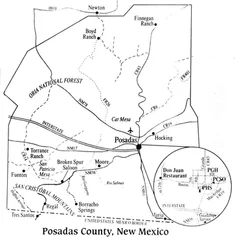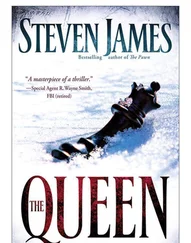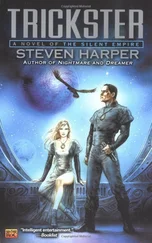Steven Dubner - Freakonomics
Здесь есть возможность читать онлайн «Steven Dubner - Freakonomics» весь текст электронной книги совершенно бесплатно (целиком полную версию без сокращений). В некоторых случаях можно слушать аудио, скачать через торрент в формате fb2 и присутствует краткое содержание. Жанр: Старинная литература, на русском языке. Описание произведения, (предисловие) а так же отзывы посетителей доступны на портале библиотеки ЛибКат.
- Название:Freakonomics
- Автор:
- Жанр:
- Год:неизвестен
- ISBN:нет данных
- Рейтинг книги:3 / 5. Голосов: 1
-
Избранное:Добавить в избранное
- Отзывы:
-
Ваша оценка:
- 60
- 1
- 2
- 3
- 4
- 5
Freakonomics: краткое содержание, описание и аннотация
Предлагаем к чтению аннотацию, описание, краткое содержание или предисловие (зависит от того, что написал сам автор книги «Freakonomics»). Если вы не нашли необходимую информацию о книге — напишите в комментариях, мы постараемся отыскать её.
Freakonomics — читать онлайн бесплатно полную книгу (весь текст) целиком
Ниже представлен текст книги, разбитый по страницам. Система сохранения места последней прочитанной страницы, позволяет с удобством читать онлайн бесплатно книгу «Freakonomics», без необходимости каждый раз заново искать на чём Вы остановились. Поставьте закладку, и сможете в любой момент перейти на страницу, на которой закончили чтение.
Интервал:
Закладка:
Loser Lane did in fact succeed. He went to prep school on a scholarship, graduated from Lafayette College in Pennsylvania, and joined the New York Police Department (this was his mother’s longtime wish), where he made detective and, eventually, sergeant. Although he never hid his name, many people were uncomfortable using it. “So I have a bunch of names,” he says today, “from Jimmy to James to whatever they want to call you. Timmy. But they rarely call you Loser.” Once in a while, he said, “they throw a French twist on it:
‘Losier.’” To his police colleagues, he is known as Lou.
And what of his brother with the can’t-miss name? The most noteworthy achievement of Winner Lane, now in his midforties, is the sheer length of his criminal record: nearly three dozen arrests for burglary, domestic violence, trespassing, resisting arrest, and other mayhem.
These days, Loser and Winner barely speak. The father who named them is no longer alive. Clearly he had the right idea—that naming is destiny—but he must have gotten the boys mixed up.
Then there is the recent case of Temptress, a fifteen-year-old girl whose misdeeds landed her in Albany County Family Court in New York. The judge, W. Dennis Duggan, had long taken note of the strange names borne by some offenders. One teenage boy, Amcher, had been named for the first thing his parents saw upon reaching the hospital: the sign for Albany Medical Center Hospital Emergency Room. But Duggan considered Temptress the most outrageous name he had come across.
“I sent her out of the courtroom so I could talk to her mother about why she named her daughter Temptress,” the judge later recalled. “She said she was watching The Cosby Show and liked the young actress. I told her the actress’s name was actually Tempestt Bled-soe. She said she found that out later, that they had misspelled the name. I asked her if she knew what ‘temptress’ meant, and she said she also found that out at some later point. Her daughter was charged with ungovernable behavior, which included bringing men into the home while the mother was at work. I asked the mother if she had ever thought the daughter was living out her name. Most all of this went completely over her head.”
Was Temptress actually “living out her name,” as Judge Duggan saw it? Or would she have wound up in trouble even if her mother had called her Chastity?*
It isn’t much of a stretch to assume that Temptress didn’t have ideal parents. Not only was her mother willing to name her Temptress in the first place, but she wasn’t smart enough to know what that word even meant. Nor is it so surprising, on some level, that a boy named Amcher would end up in family court. People who can’t be bothered to come up with a name for their child aren’t likely to be the best parents either.
So does the name you give your child affect his life? Or is it your life reflected in his name? In either case, what kind of signal does a child’s name send to the world—and most important, does it really matter?
As it happens, Loser and Winner, Temptress and Amcher were all black. Is this fact merely a curiosity or does it have something larger to say about names and culture?
Every generation seems to produce a few marquee academics who advance the thinking on black culture. Roland G. Fryer Jr., the young black economist who analyzed the “acting white” phenomenon and the black-white test score gap, may be among the next. His ascension has been unlikely. An indifferent high-school student from an unstable family, he went to the University of Texas at Arlington on an athletic scholarship. Two things happened to him during college: he quickly realized he would never make the NFL or the NBA; and, taking his studies seriously for the first time in his life, he found he liked them.
After graduate work at Penn State and the University of Chicago, he was hired as a Harvard professor at age twenty-five. His reputation for candid thinking on race was already well established.
Fryer’s mission is the study of black underachievement. “One could rattle off all the statistics about blacks not doing so well,” he says. “You can look at the black-white differential in out-of-wedlock births or infant mortality or life expectancy.
Blacks are the worst-performing ethnic group on SATs. Blacks earn less than whites. They are still just not doing well, period. I basically want to figure out where blacks went wrong, and I want to devote my life to this.”
In addition to economic and social disparity between blacks and whites, Fryer had become intrigued by the virtual segregation of culture. Blacks and whites watch different television shows. (Monday Night Football is the only show that typically appears on each group’s top ten list; Seinfeld, one of the most popular sitcoms in history, never ranked in the top fifty among blacks.) They smoke different cigarettes. (Newports enjoy a 75 percent market share among black teenagers versus 12 percent among whites; the white teenagers are mainly smoking Marlboros.) And black parents give their children names that are starkly different from white children’s.
Fryer came to wonder: is distinctive black culture a cause of the economic disparity between blacks and whites or merely a reflection of it?
As with the ECLS study, Fryer went looking for the answer in a mountain of data: birth-certificate information for every child born in California since 1961.
The data, covering more than sixteen million births, included standard items such as name, gender, race, birth-weight, and the parents’ marital status, as well as more telling factors about the parents: their zip code (which indicates socioeconomic status and a neighborhood’s racial composition), their means of paying the hospital bill (again, an economic indicator), and their level of education.
The California data prove just how dissimilarly black and white parents name their children. White and Asian-American parents, meanwhile, give their children remarkably similar names; there is some disparity between white and Hispanic-American parents, but it is slim compared to the black-white naming gap.
The data also show the black-white gap to be a recent phenomenon. Until the early 1970s, there was a great overlap between black and white names. The typical baby girl born in a black neighborhood in 1970 was given a name that was twice as common among blacks than whites. By 1980 she received a name that was twenty times more common among blacks. (Boys’ names moved in the same direction but less aggressively—probably because parents of all races are less adventurous with boys’ names than girls’.) Given the location and timing of this change—dense urban areas where Afro-American activism was gathering strength—the most likely cause of the explosion in distinctively black names was the Black Power movement, which sought to accentuate African culture and fight claims of black inferiority. If this naming revolution was indeed inspired by Black Power, it would be one of the movement’s most enduring remnants. Afros today are rare, dashikis even rarer; Black Panther founder Bobby Seale is best known today for peddling a line of barbecue products.
A great many black names today are unique to blacks. More than 40 percent of the black girls born in California in a given year receive a name that not one of the roughly 100,000 baby white girls received that year. Even more remarkably, nearly 30 percent of the black girls are given a name that is unique among every baby, white and black, born that year in California. (There were also 228 babies named Unique during the 1990s alone, and 1 each of Uneek, Uneque, and Uneqqee.) Even among very popular black names, there is little overlap with whites. Of the 626 baby girls named Deja in the 1990s, 591 were black. Of the 454
Читать дальшеИнтервал:
Закладка:
Похожие книги на «Freakonomics»
Представляем Вашему вниманию похожие книги на «Freakonomics» списком для выбора. Мы отобрали схожую по названию и смыслу литературу в надежде предоставить читателям больше вариантов отыскать новые, интересные, ещё непрочитанные произведения.
Обсуждение, отзывы о книге «Freakonomics» и просто собственные мнения читателей. Оставьте ваши комментарии, напишите, что Вы думаете о произведении, его смысле или главных героях. Укажите что конкретно понравилось, а что нет, и почему Вы так считаете.











